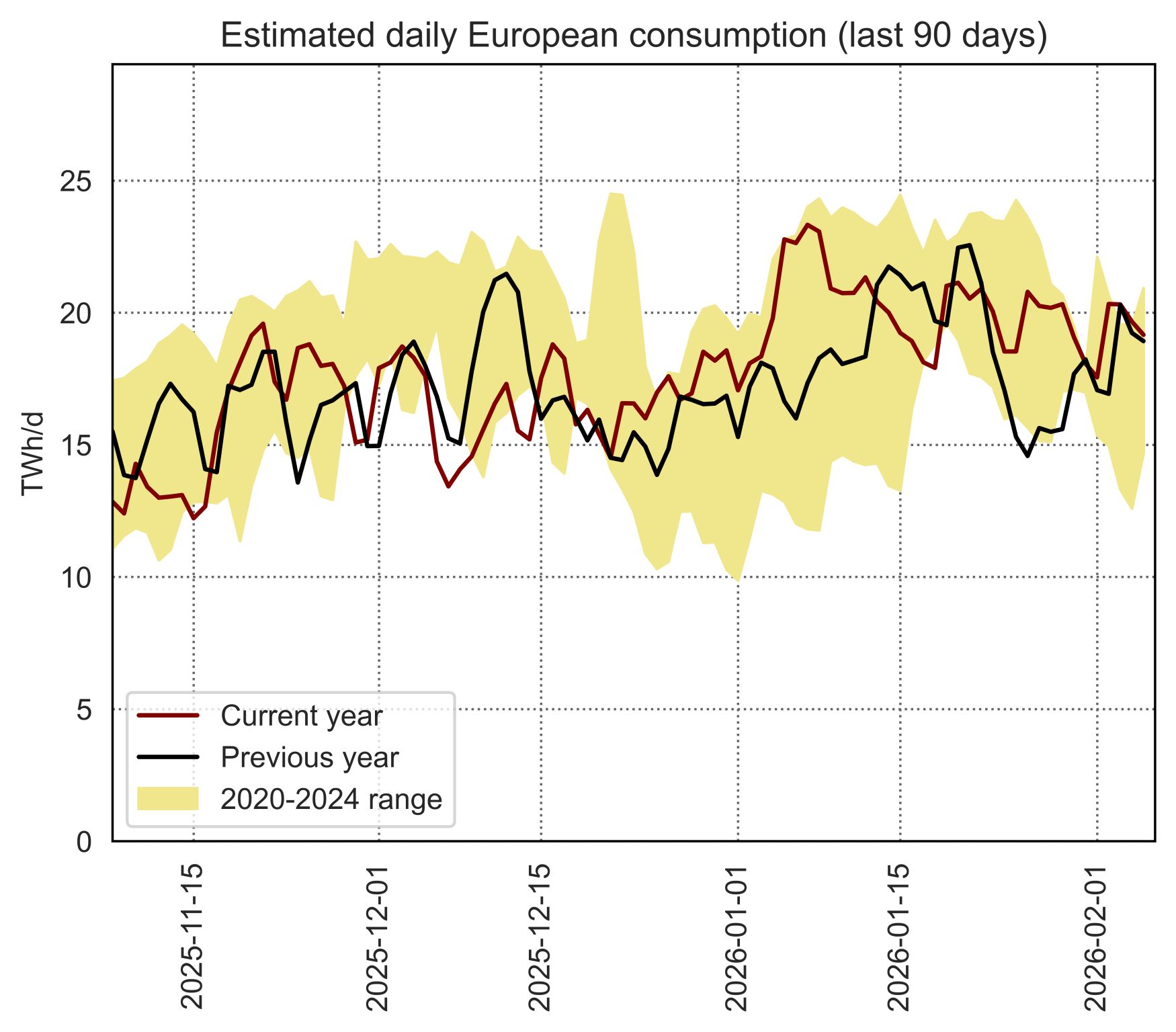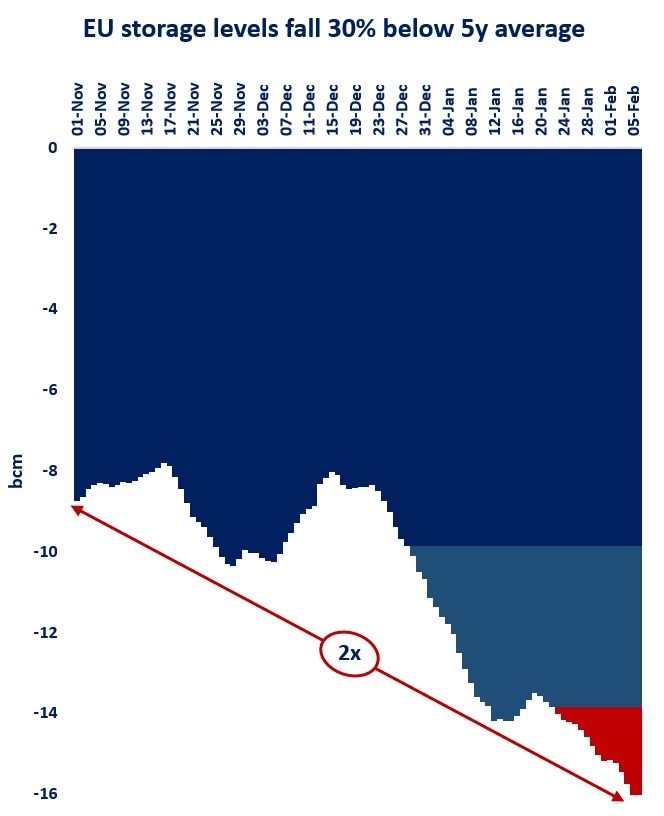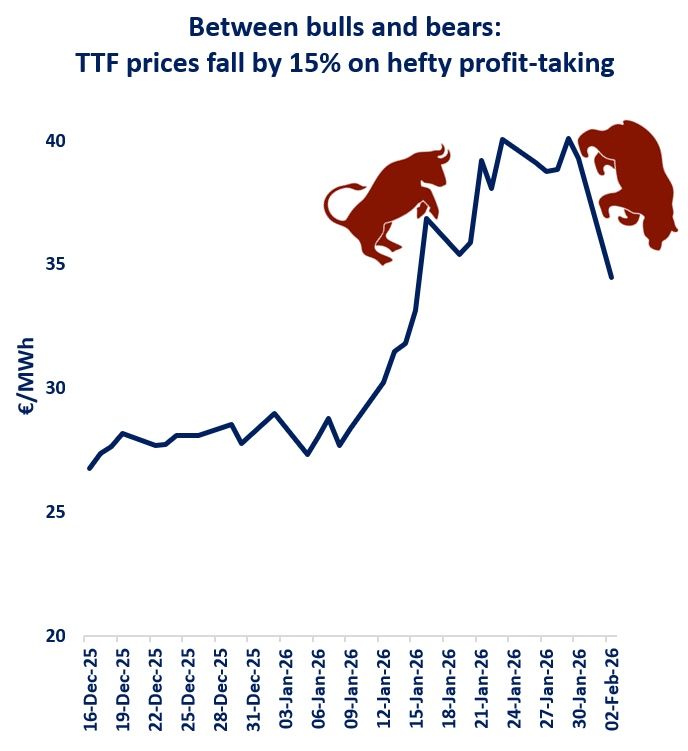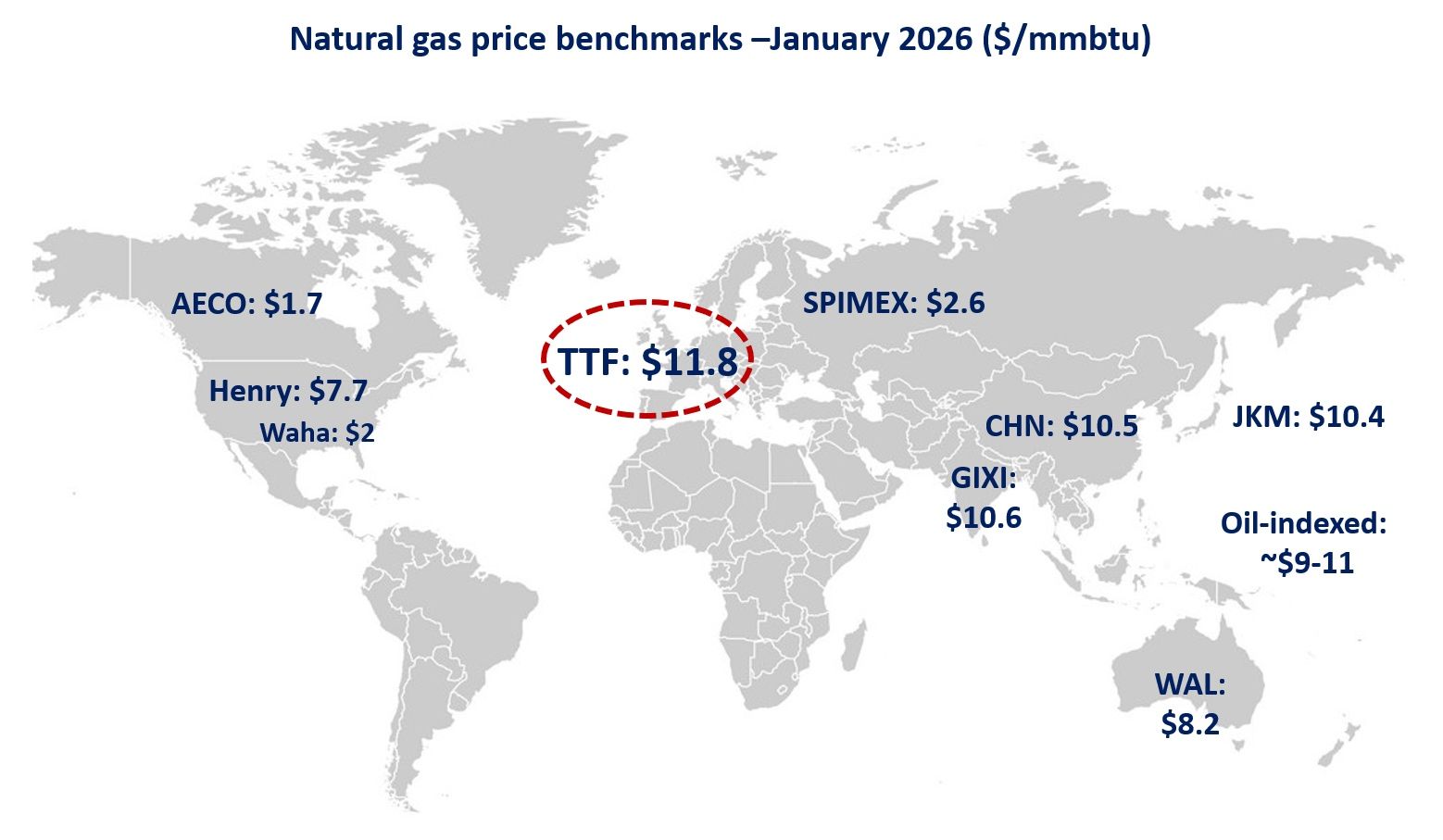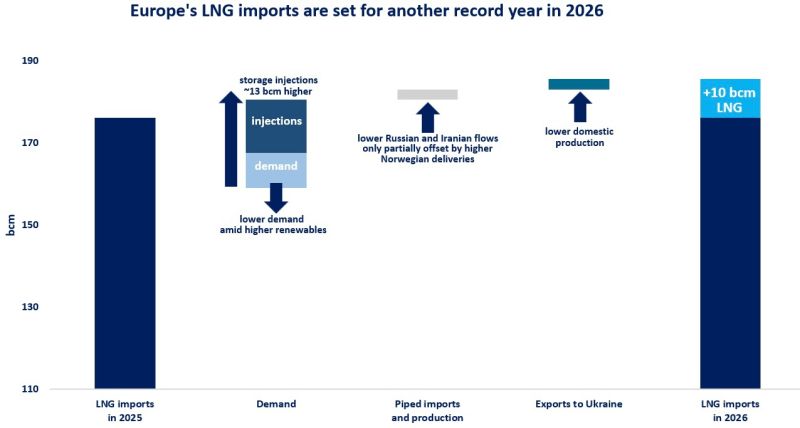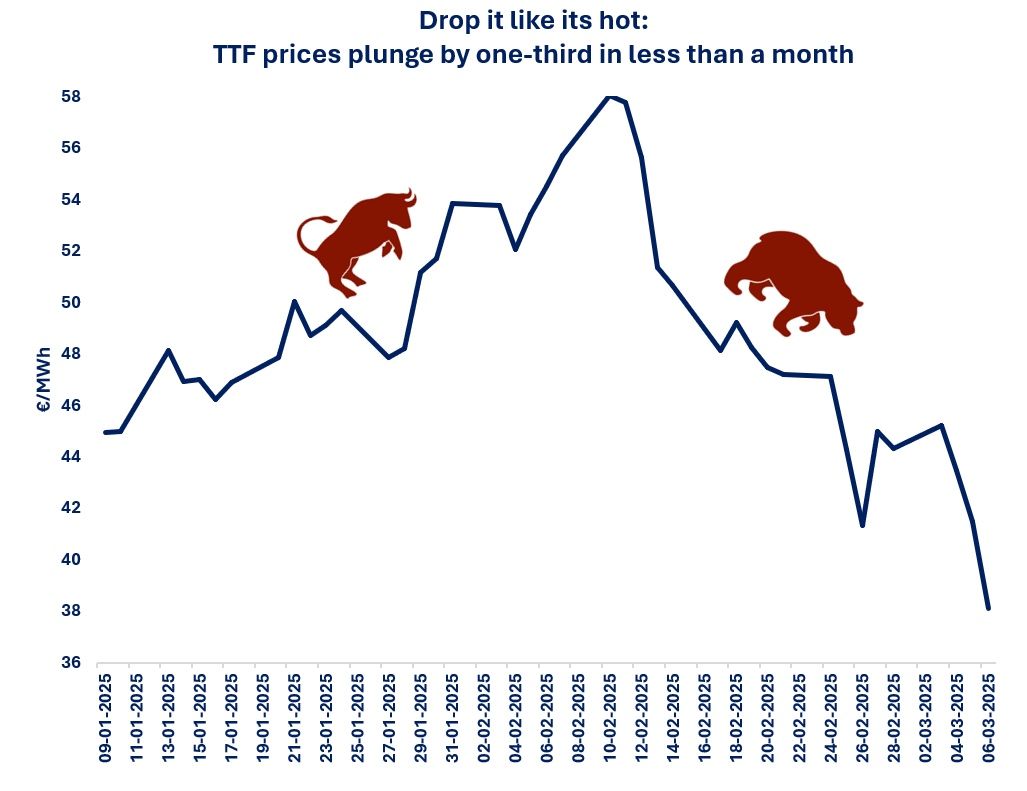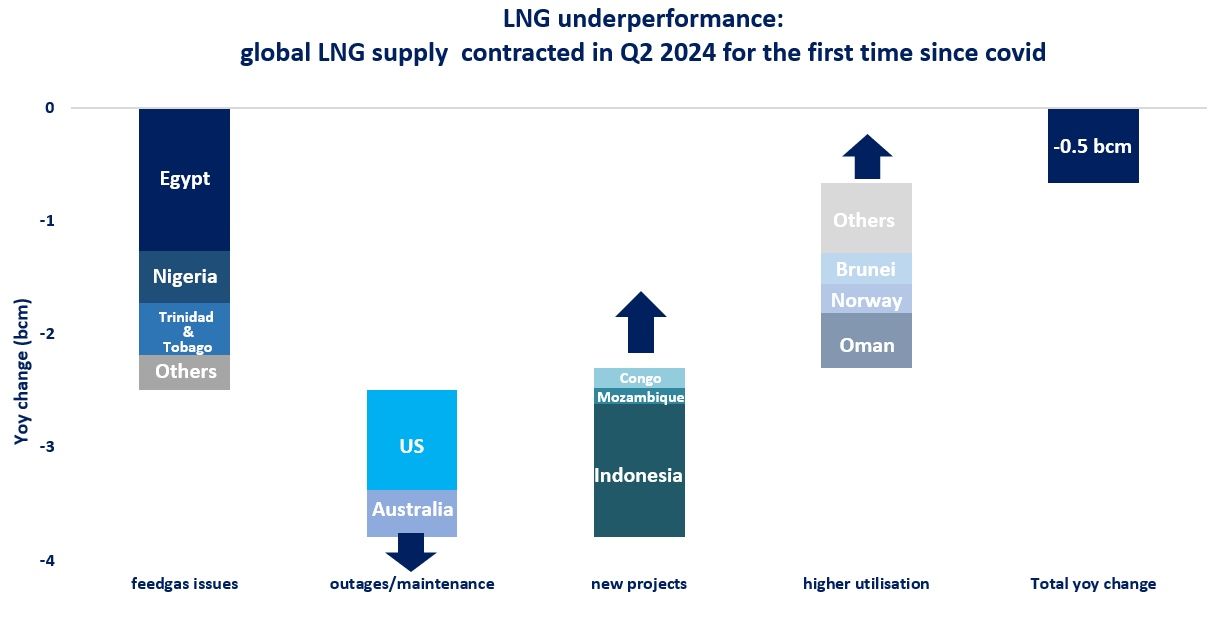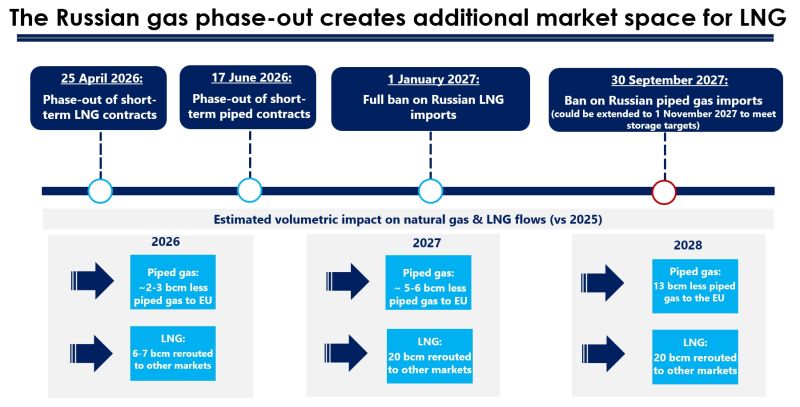

Cash-in, cash-out: the EU injected around $100 billion worth of gas into storage this summer, with its value now quickly drawing down, and potentially translating into a “loss” of over $70 billion.
The EU injected a record of 70 bcm of gas into storage in 2022, at a time when gas prices skyrocketed, driven by geopolitical uncertainty, Europe’s deep power crisis and in part by the strong injection needs.
Since their summer highs, gas prices fell by more than 80%, to average at around $20/mmbtu since the start of the year.
Unseasonably mild weather, strong winds, high stocks and continued healthy LNG inflows are all putting downward pressure on prices… driving down seasonal price spreads into deep negative territory.
And depressed demand is also weighing on storage withdrawals, which are well-down compared to their historic average, with only 9 bcm of gas withdrawn since the start of the heating season.
Altogether, the value of gas withdrawals this winter could be just one-third of the value of net injections over the summer 2022, translating into a hefty loss of $75 billion…
But is this the true reflection of gas storage value and is this really a loss?
High storage levels at the start of the heating season were in itself a key factor in the current downward trajectory of gas prices… in a way reducing the value of the stored gas… something we discussed in the gas storage paradox series.
Second, not all the gas injected during the 2022 summer will be sold during this winter… some of it is likely to be withdrawn during the 2023/24 heating season.
And of course, the strategic value of gas storage is not necessarily reflected in summer-winter spreads and in the outturn value of withdrawals.
This being said, the current situation highlights the need for more sustainable storage financing mechanisms, such as contract for differences, to reduce the risks associated with gas storage in a highly volatile market environment.
What is your view? What role for gas storage in the current market environment? What risk-sharing mechanisms could be considered?
Source: Greg Molnar (LinkedIn)

